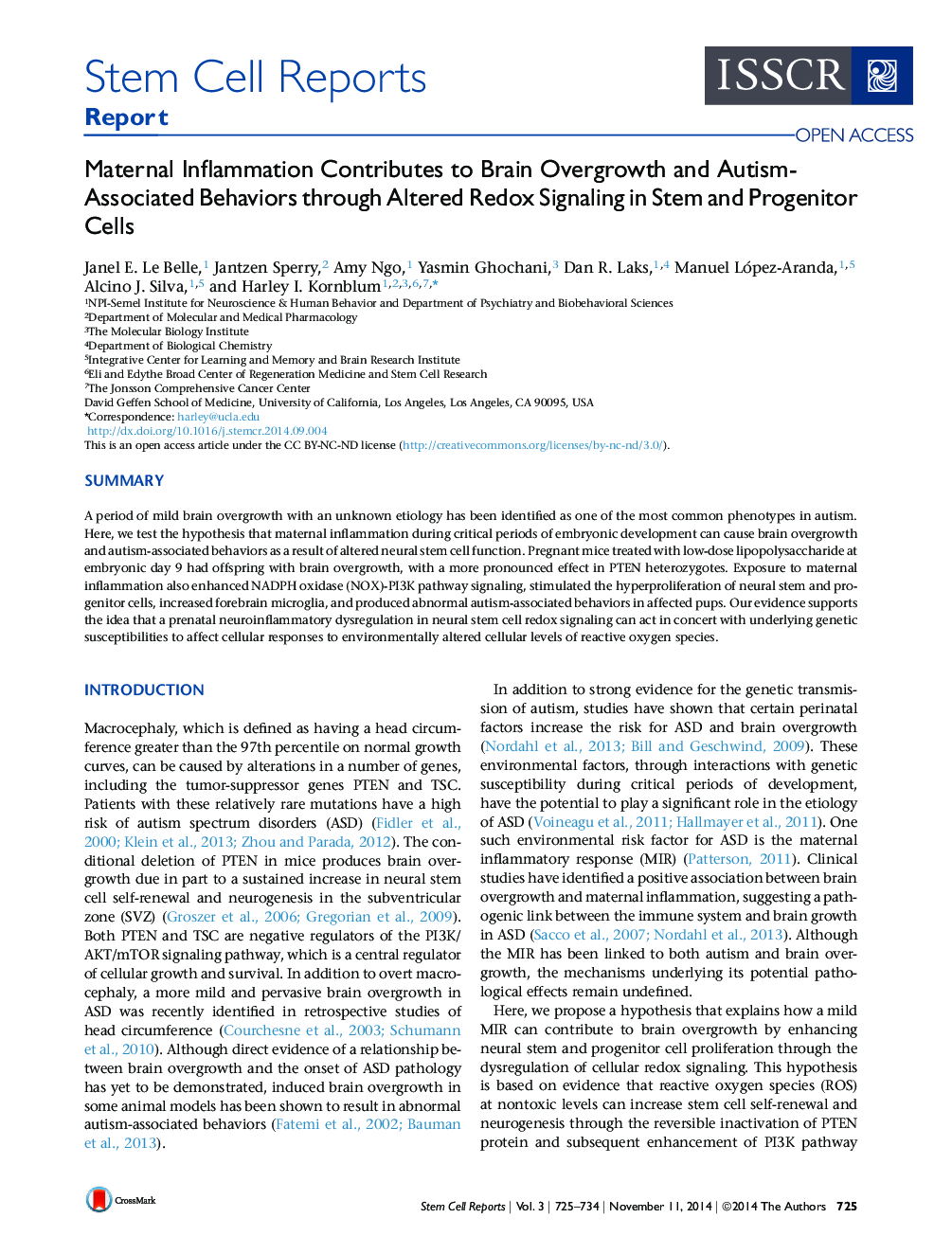| Article ID | Journal | Published Year | Pages | File Type |
|---|---|---|---|---|
| 2093323 | Stem Cell Reports | 2014 | 10 Pages |
•Mild maternal inflammation produces brain overgrowth and autistic behaviors in pups•Maternal inflammation increases stem cell division, ROS levels, and PI3K activation•Genetic susceptibility produces even greater brain overgrowth when combined with MIR•Overgrowth and some associated abnormal behaviors can be rescued by inhibition of NOX
SummaryA period of mild brain overgrowth with an unknown etiology has been identified as one of the most common phenotypes in autism. Here, we test the hypothesis that maternal inflammation during critical periods of embryonic development can cause brain overgrowth and autism-associated behaviors as a result of altered neural stem cell function. Pregnant mice treated with low-dose lipopolysaccharide at embryonic day 9 had offspring with brain overgrowth, with a more pronounced effect in PTEN heterozygotes. Exposure to maternal inflammation also enhanced NADPH oxidase (NOX)-PI3K pathway signaling, stimulated the hyperproliferation of neural stem and progenitor cells, increased forebrain microglia, and produced abnormal autism-associated behaviors in affected pups. Our evidence supports the idea that a prenatal neuroinflammatory dysregulation in neural stem cell redox signaling can act in concert with underlying genetic susceptibilities to affect cellular responses to environmentally altered cellular levels of reactive oxygen species.
Graphical AbstractFigure optionsDownload full-size imageDownload as PowerPoint slide
